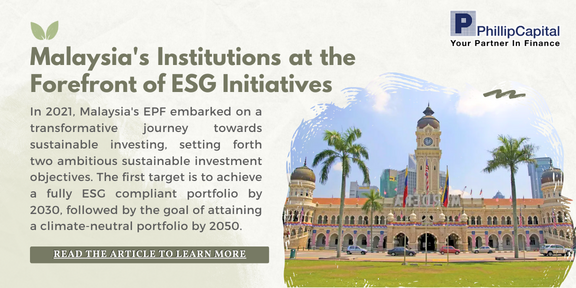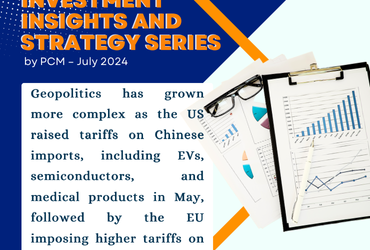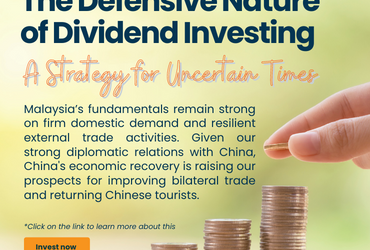
In 2021, Malaysia’s Employees Provident Fund (EPF) embarked on a transformative journey towards sustainable investing, setting forth two ambitious sustainable investment objectives. The first target is to achieve a fully ESG compliant portfolio by 2030, followed by the goal of attaining a climate-neutral portfolio by 2050. These overarching objectives are underpinned by the development of comprehensive ESG policies designed to guide EPF’s investment activities, focusing on ESG issues and contentious sectors identified as priorities based on their urgency and significance to EPF’s mission.
With 4 out of the top 5 global risks being environmental-related, as per the World Economic Forum (WEF), Malaysia’s commitment to achieving carbon neutrality by 2050 has been evident. EPF’s alignment with national efforts on climate change further emphasises this commitment. Separately, EPF prioritises workers’ wellbeing, echoing global concerns raised by UNICEF and ILO reports.
With that, EPF’s Priority Sector Policies target six key sectors—Palm Oil, Oil & Gas, Mining, Power Generation, Construction, and Banking—based on EPF’s exposure and the inherent ESG risks within these industries. These policies complement EPF’s broader ESG framework, addressing sector-specific ESG issues and guiding companies toward sustainable practices. Companies in these sectors are encouraged to adhere to both issue-specific and sector-specific policies to align with EPF’s sustainability goals and foster long-term value creation.
And fresh from the oven this week, EPF has announced a commitment of up to RM250 million to stimulate mid-to-growth stage companies in Malaysia through its collaboration with Gobi Partners, a pan-Asian venture capital firm with a proven track record in investments. The investments will focus on healthcare, agriculture, financial inclusivity, sustainability, education, social infrastructure, and future themes aligning with EPF’s mandate. We applaud EPF’s commitment to fostering innovation and generating enduring socio-economic benefits for the mid-to-growth stage companies.
Separately, it was also reported that Kumpulan Wang Persaraan (Diperbadankan) (KWAP) has increasingly focused on ESG standards with the aim to create sustainable returns in the longer run. To achieve that, KWAP had in September 2023, launched Dana Perintis, aiming to invest up to RM500m over 18-24 months to boost Malaysia’s startup ecosystem and foster innovation.
The initiative aims to expedite growth in Malaysia’s entrepreneurial scene, aligning with KWAP’s sustainability pledge as a UN Principles for Responsible Investment (PRI) signatory.
Not only that, the Sarawak government is developing the state’s digital infrastructure to achieve an inclusive and environmentally sustainable digital economy. At the same time, the state government aims to reduce greenhouse gas emissions by 45% by leveraging technology and data. The ongoing collaboration between the Sarawak government and Huawei will expedite the state’s digital transformation. Since 2017, they have worked on projects to extend connectivity to remote areas. Huawei’s Government Public Services Digitalisation unit will assist Sarawak in implementing its Digital Economy Blueprint 2030.
Phillip Capital Management Sdn Bhd (PCM)’s role in ESG
In line with the nation’s goal towards sustainability, PCM has integrated ESG factors that we attest as material and relevant for a company’s financial performance and long-term sustainability into our investment decision-making process. These include but not limited to ESG ratings by established index, environmental considerations (climate change, natural resources preservation, pollution & waste), social considerations (health & safety, community engagement, employee relations) and governance considerations (board independence, transparency & disclosure, shareholder rights).
Separately, PCM offers discretionary portfolio that invests in stocks with high ESG ratings from the F4GBM and F4GBMS Indices, namely PMART and PMA ESG. There are both conventional and Shariah options available. PMART and PMA ESG is suitable for investors who want to optimise the risk-adjusted return by constructing a diverse sustainable portfolio of ESG companies.
In our recent publication, we emphasised that despite the challenges in 2023, the majority of our Private Managed Accounts posted positive returns, surpassing the 2.7% decline observed in the KLCI. Specifically, our ESG portfolios demonstrated robust performance, achieving a significant positive return of +9.7%, outperforming the KLCI, which saw a decline of -2.7%, and surpassing the F4GBM Index, which recorded a modest increase of +0.7%. Here is the list of stocks in our ESG mandates.
Table 1: ESG Mandates – Stock List 2024
Conventional ESG Portfolio

Shariah ESG Portfolio

Source: PCM
How our holdings could harness the benefits of increasing ESG trend?
We believe listed companies with good ESG practices will continue to benefit from the rising sustainability trend. Furthermore, we have pinpointed selected names within key sectors—Construction, Renewables, Utilities, and Property—that stand to benefit from the Net-Zero Transition Roadmap (NETR) and the policies outlined in Budget 2024. As companies enhance their ESG performance, we foresee a reduction in the risks associated with foreign labour dependency, a factor that historically affected industries such as Plantation, Construction, Gloves, and Electronic Manufacturing Services (EMS). With supply chains increasingly prioritising ESG criteria, ongoing government and corporate initiatives will help mitigate the risks of sanctions and reputational damage. This is crucial amid heightened ESG scrutiny, safeguarding trade opportunities.
We will consistently assess our holdings and adjust our portfolio as necessary to align with prevailing market conditions. Please click on the link to learn more or email us at cse.my@phillipcapital.com.my if you require any further information.
Note:
[1] ESG Ratings of Public Listed Companies (PLCs) assessed by FTSE Russell in accordance with FTSE Russell ESG Ratings Methodology, December 2023 – link
Disclaimer:
The information contained herein does not constitute an offer, invitation or solicitation to invest in Phillip Capital Management Sdn Bhd (“PCM”). This article has been reviewed and endorsed by the Executive Director (ED) of PCM. This article has not been reviewed by The Securities Commission Malaysia (SC). No part of this document may be circulated or reproduced without prior permission of PCM. This is not a collective investment scheme / unit trust fund. Any investment product or service offered by PCM is not obligations of, deposits in or guaranteed by PCM. Past performance is not necessarily indicative of future returns. Investments are subject to investment risks, including the possible loss of the principal amount invested. Investors should note that the value of the investment may rise as well as decline. If investors are in any doubt about any feature or nature of the investment, they should consult PCM to obtain further information including on the fees and charges involved before investing or seek other professional advice for their specific investment needs or financial situations. Whilst we have taken all reasonable care to ensure that the information contained in this publication is accurate, it does not guarantee the accuracy or completeness of this publication. Any information, opinion and views contained herein are subject to change without notice. We have not given any consideration to and have not made any investigation on your investment objectives, financial situation or your particular needs. Accordingly, no warranty whatsoever is given and no liability whatsoever is accepted for any loss arising whether directly or indirectly as a result of any persons acting on such information and advice.






